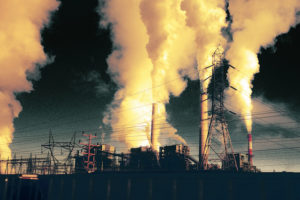The upcoming G20 meeting will be a chance for the world’s most influential economies to put an end date to subsidising fossil fuels. Civil society is calling for the leaders to speed up the ratification of Paris agreement and commit to a phase out of fossil fuel subsidies by no later than 2020.

The G20 leaders will be holding their 11th summit in Hangzhou, China between 4-5 September. The G20 members, representing two thirds or the world population, will discuss how to move together ‘towards an innovative, invigorated, interconnected and inclusive world economy’.
One of the six priority areas discussed at the summit will be how to carry on the momentum of the Paris agreement and the 2030 Agenda for Sustainable Development.
This is a vital moment for the world’s most powerful economies to commit to ending the era of fossil fuels and accelerate investment in clean energy. In the 2009 summit in Pittsburgh, the G20 group agreed to rationalize and phase out inefficient fossil fuel subsidies in a medium term.
Since then, the economies have however gone astray from their commitment by investing billions of dollars in fossil fuel exploitation.
EU’s flagship climate tool used to subsidise coal
While parading itself as a climate leader, the European Union has actually been a considerable culprit in supporting inefficient fossil fuel investments. The EU alone has been responsible for assigning over €13 billion for fossil fuel projects between 2013 and 2020 through its banks and funds.
Moreover, through the bloc’s main climate policy instrument – the EU Emissions Trading System – the EU is subsidising fossil fuel capacity of some of the Member States. For example, the European Commission has approved up to €12 billion to be invested in modernising energy systems in Central and Eastern Europe between 2013 and 2019, majority of which is planned to be used for fossil fuel energy production.
NGOs urge the EU to push for a phase out by 2020
European Council President Donald Tusk and European Commission President Jean-Claude Juncker, who are representing the EU at the summit, will need to get behind the EU agenda to phase out fossil fuel subsidies by 2020.
In a letter to the two leaders, a group of environmental organisations is calling on the EU to push for a clear timeline for a full and equitable phase out of fossil fuel subsidies by 2020.
NGOs are also urging the G20 members to step up the ratification of the Paris agreement, which will be crucial to propel governments’ efforts to fight climate change and align finance flows with the agreement.
By Urska Trunk
More information:
Policy brief Fossil fuel subsidies from Europe’s carbon market (by Carbon Market Watch and Bankwatch CEE)
Policy brief Connecting the dots: The EU’s funding for fossil fuels (by Climate Action Network Europe)






